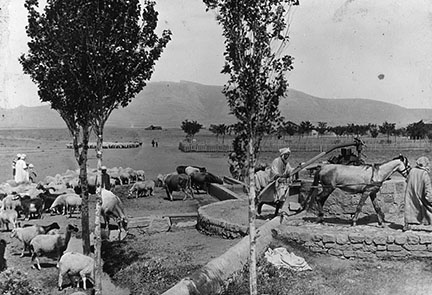There is a recent documentary on the Zabbalin garbage collectors of Cairo, produced by RT.
Category Archives: Environment
Seasonal Knowledge in the Gulf Project
This is to note that I have received a research grant from the Qatar Foundation for a study of indigenous knowledge of the seasons and time-telling in the Gulf. I have created a separate webpage to indicate progress through updates on the progress. This page is at https://tabsir.net/?page_id=2903
Webinar in Islamic Material Culture “The Rise of an Agricultural Empire”
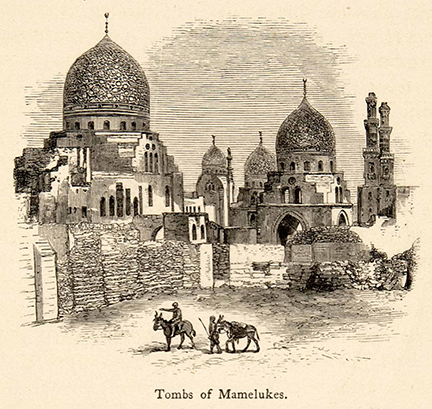
Economy and Material Culture in the Early Islamic Empire
Bi-Weekly, Wednesday, 4-6 pm CEST Starting April 6, 2016
Islamic Material Culture
The Universität Bonn (Bethany Walker), the Ludwig-Maximilians-Universität in Munich (Andreas Kaplony), The Bard Graduate Center in New York (Abigail Balbale), and Universität Hamburg (Stefan Heidemann) are co-operating in setting up a series of webinars in Archaeology of the Middle East, Arabic Papyrology, Islamic Arts and material Culture, and Numismatics of the Middle East.
Why Agriculture?
Why agriculture and the Early Islamic Empire in material culture? Not least Bulliet’s book about the cotton boom (2009) in the Early Empire has stimulated discourse about agriculture and elite culture of the Early Islamic Empire. The webinar tutorial explores different aspects of this agriculture boom in case studies from Central Asia to the Iberian Peninsula. We see a continuation and improvement in efficiency of established forms of irrigation from Late Antiquity to the Early Islamic Empire. The new Muslim elites turned into a landholding class establishing estates and luxurious mansions. The new imperial metropolises created an unprecedented demand in foodstuffs, which was answered by bringnig more land under cultivation and introducing more efficient ways of production. Food had to be transported, and maritime and river routes were established. While some of these developments can be explored through text, material culture and archaeology allows new ways to see this boom in detail. Guest lecturers will include Corisande Fenwick (University College London), Abigale Balbale (The Bard Graduate Center, New York), Sören Stark, Institute for the Study of the Ancient World), and Kristoffer Damgaard (Carsten Niebuhr Institute, Copenhagen), and Bethany Walker (Universität Bonn).
The webinar is part of the ‘Webinar Initiative in Islamic Material Culture’ jointly organized by the Bard Graduate Center, New York, Universität Bonn, Ludwig-Maximilians-Universität, Munich, and Universität Hamburg.
Prerequisites for participation
Spoken and written proficiency in English language. The course is open to all advanced students in B.A., M.A., and PhD programs of Islamic studies, historians, art historians, and archaeologists of the Middle East. All students need a computer, a reliable internet connection, and a headset. In a personal online short skype interview in early April 2016, we will check whether all technical assets are working. Students from Hamburg have to sign up in the campus system ‘Stine’ and to contact Stefan Heidemann as early as possible to register and get the necessary introduction to the technology. Students from universities other than Universität Hamburg are welcome and have to apply with a short CV and a motivation letter in English until March, 15, 2016. These will be emailed to Prof. Stefan Heidemann at: stefan.heidemann@uni-hamburg.de. Preference is given to students from universities within the network of the webinar initiative “Islamic Material Culture”.
http://www.aai.uni-hamburg.de/voror/Personal/agricultural-empire-sommer-2016.html
The Nerve of Denial
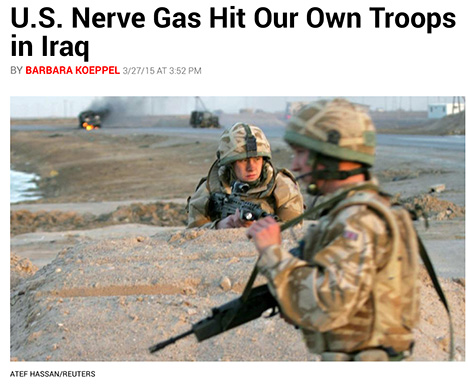
This is a chilling account of a cover-up by the U.S. military of the exposure of 200,000 American soldiers in the first Gulf War to nerve gas.
http://www.newsweek.com/how-us-nerve-gassed-its-own-troops-then-covered-it-317250
Bullfighting in the UAE
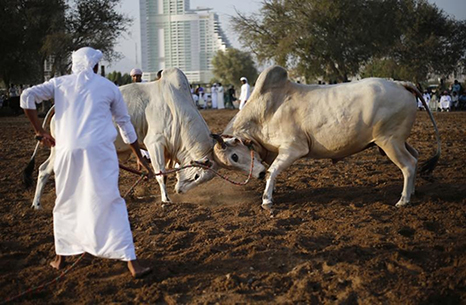
Reuters has an interesting photo essay of recent bullfighting in the UAE.
Two bulls lock their horns during a bullfight in the eastern emirate of Fujairah October 17, 2014. There are no matadors or picadors, but bulls locking horns with each other draw big crowds to bullfights in the United Arab Emirates (UAE). An hour’s drive from the dancing water fountains of Dubai’s glitzy downtown, hundreds of fans gather in Fujairah to watch bulls fighting, or perhaps more accurately head butting, with honour rather than money at stake. The UAE sport involves two bulls locking horns in a three-to-four minute Sumo-wrestling-like fight that usually ends with no bloodshed. Picture taken October 17, 2014. REUTERS/Ahmed Jadallah
Lament for a dead camel
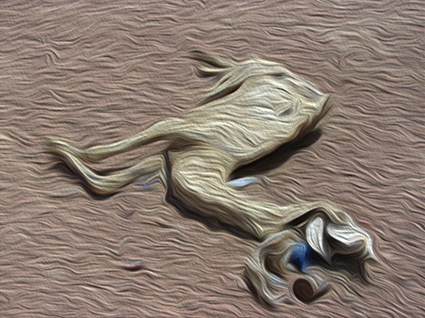
[For Jonathan Swift, whose wit is sorely needed today.]
Imagine the camel deceased
its rotting carcass dry boned
the trek of this ship of the desert now ceased
just a sad-sanded dromedary in the dust.
And Antar’s steed now solid steel
broken down stirrup and token spirit
surrendered to the surreal
covered with dust.
The Bani Toyota now raid us
driven by backward asses
not trying to evade us
but going for bust.
That Dodge Ram runs over the ewe
that Lamborghini in Abraham’s shaking hand
has no clue
but his son must
die too.
Can you cry
for all those driven to despair.
Do you care
for all those who cry.
The last sacrifice is nothing
but roadkill
for the thrill
and that is no accident.
Postcards from old Aden #16
There are many postcards on the Internet from old Aden under British control. Photographers in Aden were not immune to the Orientalist gaze on the curious and the bizarre.
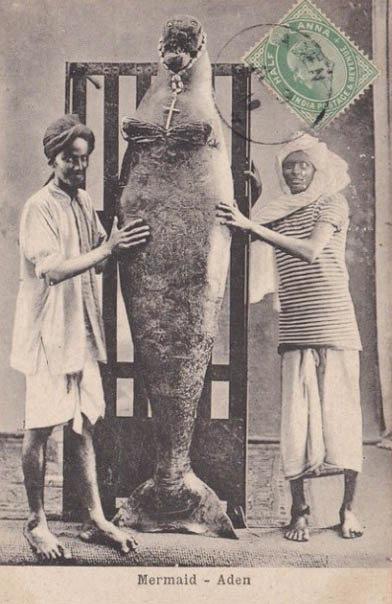
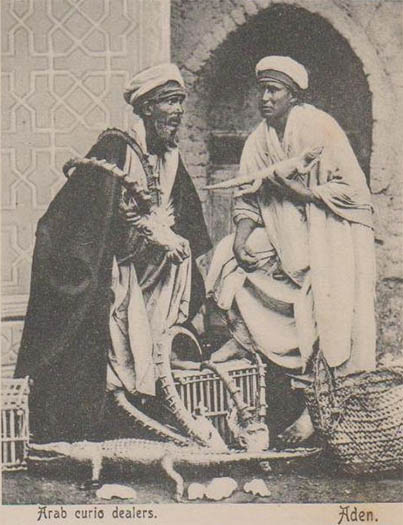
to be continued… for #15, click here.
“Desert Sheikhs” at the Smithsonian
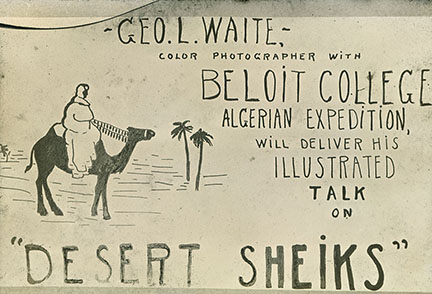
There is an extraordinary collection of 47 Magic Lantern slides from the 1930 Beloit College Logan Museum Expedition to Algeria by George L. Waite, the photographer and cinematographer. This is available in an online collection at the website of the Smithsonian Institution. Click here to access the collection.
